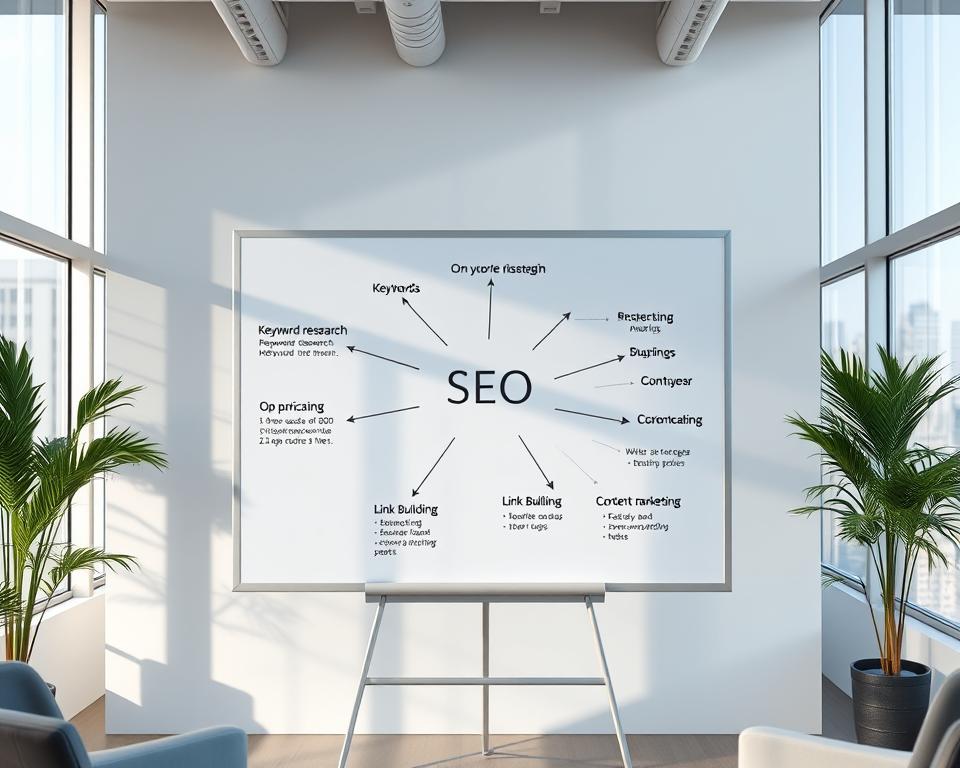1on1 Marketing: Unveil Tailored Customer Engagement.
Ever ponder why some brands connect deeply with their audience while others falter? The secret lies in 1on1 Marketing, a game-changing method that turns generic marketing into personalized experiences. It focuses on individual tastes, creating a bond that traditional marketing can’t match. This approach shifts the focus from mass marketing to tailored strategies that speak directly to each customer’s heart.
By adopting 1on1 Marketing, businesses can build more meaningful connections. They create strategies that genuinely resonate with their audience. This section explores the core of 1on1 Marketing, showing how it enables brands to engage with customers on a more personal level, official company website 1 on 1.
The Evolution of Marketing Strategies
Over time, the marketing landscape has undergone a dramatic shift. At first, marketers deployed broad-brush strategies aimed at average customers. Today, the market demands a focus on customer engagement through tailored dialogues. This shift emphasizes the need to understand each customer as an individual, not just part of a group.
As marketing evolved, it became clear that generic approaches were no longer effective. Today’s methods focus on building real relationships rather than simply pushing products. By leveraging data insights, marketers move to tactics that cater to each customer’s unique preferences.
This evolution not only deepens customer connections but also boosts brand loyalty and retention. In a world where consumers face endless choices, brands that offer personalized experiences stand out. They create platforms for dialogue and engagement, ensuring customers feel valued.

| Strategy Type | Characteristics | Example |
|---|---|---|
| Generic Approach | Broad messaging, general appeal | Mass email blasts |
| Personalized Engagement | Customized dialogues, fine-tuned reach | Custom product suggestions |
Personalization’s Role in B2B
As B2B marketing evolves, personalization is indispensable. Marketers aim to boost conversion rates through personalized 1:1 marketing. Studies show that many see this method as key to keeping customers. In today’s fast-paced world, connecting with audiences through effective engagement is critical.
Customization addresses the hurdle of capturing attention. It ensures content resonates with each customer’s unique preferences. Focusing on personal experiences allows brands to shine amid competition.
As touchpoints multiply, the demand for personalization grows. Companies embracing tailored tactics meet needs and forge lasting bonds. This approach can give a significant edge in the competitive market today.
What Is 1on1 Marketing?
One-to-one marketing is about tailoring experiences to meet each customer’s unique needs. It leverages data insights to design personalized engagement tactics. By concentrating on individual experiences, it fosters robust customer bonds.
Imagine a cafe where the barista remembers your go-to order—this is one-to-one Marketing in action. This simple gesture demonstrates how attending to preferences bolsters satisfaction. It turns a simple transaction into a memorable experience, building loyalty.
Implementing one-to-one Marketing requires a deep dive into customer data. They analyze behaviors and preferences to customize messaging. This guarantees marketing efforts hit the mark with distinct tastes, producing stronger connections and greater satisfaction.
As companies pursue personalized engagement, they recognize that customization is key lasting success. Those who excel in creating individualized experiences gain significant benefits from their efforts.
Benefits of Personalized Customer Engagement
Personalized customer engagement brings numerous benefits to modern brands. It significantly boosts customer satisfaction by providing tailored experiences that meet individual preferences and needs. Studies show that 80% of consumers prefer to buy from brands that offer personalized interactions. This underscores the power of tailored marketing.
Loyalty programs that incorporate personalization tend to retain customers better. By addressing specific pain points and preferences, businesses create an environment where customers feel valued and understood. This link promotes repeat business, increasing profits.
Tailored marketing yields better conversion rates. Tailored recommendations and targeted content guide customers through the sales funnel, improving their journey from consideration to purchase. Highlighting the benefits of personalized marketing enhances brand perception and positions businesses for success in a competitive market.
| Benefit | Description | Impact |
|---|---|---|
| Customer Satisfaction | Personalized experiences improve overall customer happiness. | Higher chances of repeat purchases. |
| Rewards Tailored to You | Custom offers boost customer engagement. | Stronger retention and brand loyalty. |
| Conversion Rates | Targeted content drives customer actions effectively. | Growth in sales and revenue. |
Challenges in Implementing Personalized Marketing
Brands face numerous hurdles when aiming to implement personalized marketing. One major challenge is the complexity of data collection. High-quality data is key for segmenting audiences effectively. Without this, campaigns miss the mark, squandering opportunities and resources.
Brands targeting specific audiences must navigate the fine line between personalized and generic communication. Big enterprises struggle to keep a personal touch amid heavy automation. This can result in losing the personal touch that customers cherish. – 1on11on1 official company website
Smaller businesses also have their own set of challenges. They may lack clear messaging, hindering their personalization efforts. Acknowledging these hurdles is crucial for refining strategies and boosting engagement.
Tools Fueling Personalized Marketing
Innovative tech is transforming personalized engagement. Customer Relationship Management (CRM) systems stand out as a key component. They organize data, essential for crafting bespoke experiences. A robust CRM system allows companies to grasp customer preferences and behaviors more deeply.
AI in marketing improves personalization by enabling more accurate targeting and automating tasks. ML algorithms analyze large datasets to reveal trends and behaviors. This allows strategy refinement. Automation reduces manual effort and optimizes campaign impact.
Studies reveal that 72% of marketers focus on CRM systems for personalization. Marketing automation tools are used by 55% to streamline campaigns. These technologies empower businesses to offer customized experiences on a large scale. This ensures marketing efforts connect with individual consumers, avoiding generic messages.
Merging these tools creates a dynamic engagement framework. The fast-evolving scene drives adoption of cutting-edge tech. These tools not only improve efficiency but also strengthen connections with their audiences.
Best Practices for Personalizing Marketing Efforts
Effective personalized marketing hinges on key best practices. They guarantee resonance and improved engagement. Key components include:
- Segmenting Your Audience is essential for targeting specific groups based on common traits. It enables precision messaging, increasing engagement rates.
- Using refined communication improves the customer experience. Uniform, relevant messaging across platforms builds trust and fosters ongoing engagement.
- Adopting testing strategies, like A/B testing, is critical. It identifies the most effective tactics by comparing messages and metrics.
Leveraging customer data is crucial to grasp behaviors and preferences. Marketers should regularly analyze this data to refine their strategies. Following these practices enables brands to develop personalization that truly resonates with their audience.
Creative Ways to Personalize
Innovative tactics enhance personalization across all touchpoints. Companies send emails tailored to tastes, amplifying impact. Analyzing purchase history allows spot-on product suggestions, driving sales.
Segment-specific videos are another smart tactic. It grabs attention and builds a strong emotional bond between the brand and its audience. Also, loyalty programs that evolve with user habits offer rewards for meaningful interactions, enriching the customer journey.
| Creative Tactic | Description | Benefit |
|---|---|---|
| Tailored Emails | Emails crafted to individual preferences and behaviors. | Boosts engagement and conversion rates. |
| Product Recommendations | Suggestions based on previous purchases and browsing history. | Boosts sales and customer satisfaction. |
| Segmented Videos | Video content designed for specific segments. | Strengthens brand connection and engagement. |
| Adaptive Rewards | Rewards systems that adapt to individual behaviors. | Drives loyalty and repeat business. |
Companies gain significantly by weaving customized offers into social media, email, and app alerts. Each interaction is a chance to show the brand’s dedication to personalized marketing. It crafts memorable experiences, making brands stand out in a crowded landscape.
Emerging Trends in Personalized Marketing
One-to-one Marketing is evolving fast, propelled by cutting-edge trends. AI will power campaigns tailored to individual requirements. This approach boosts marketing success and builds stronger customer connections by delivering the right content at the right time.
Another key trend is the importance of omnichannel experiences. Consumers expect seamless transitions across social, email, and other channels. Brands must ensure consistent messaging to meet these expectations. Understanding where and how customers interact helps create a unified experience, strengthening brand loyalty.
Adapting to these shifts, ethical data practices will become essential for maintaining trust with consumers. With growing concerns over data privacy, marketers must be transparent and responsible with data. Prioritizing ethical practices meets regulations and builds trust, paving the way for loyal relationships in one-to-one Marketing’s future.

